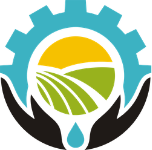Achieving Healthy Food Systems
The Challenges We Face
Healthy, accessible, and sustainable food systems are an integral part of public and ecosystem health. From how food is produced or harvested, through processing and access in markets, to the behaviors underlying what we consume and the nutritional consequences, every aspect affects human health. Yet, common farming and harvesting practices and our consumption choices adversely impact the planet and the health of ecosystems by accelerating climate change and loss of biodiversity, through wide-spread deforestation, agricultural land degradation, contamination of waterways with fertilizer and animal waste, loss of species through unsustainable harvests, and fossil-fuel intensive food distribution patterns. The feedbacks resulting from these changes include adverse weather events, emergence of human and agricultural infectious diseases, and loss of ecosystem services such as pollination and provision of foods, that acutely and chronically influence food availability and supply chains. Addressing these multi-directional and time-sensitive challenges is necessary to protect the health and wellbeing of people, animals, and the planet.

Underlying these food system challenges are continual exposure to dietary misinformation and persistent inequities in access to food and food-related risks. People throughout the United States and around the world are at risk for either inadequate or over-consumption of food, poor access to needed nutrients (particularly micronutrients), and food insecurity, due to a variety of economic, geographic, political and social factors. Marginalized people and places also face risks from local environmental impacts of food production and processing/distribution. The production processes, dietary patterns, and public policies in high-income countries and communities are most responsible for food system threats, yet as climate change intensifies food system challenges, it is low-income and oppressed people and places that will experience larger burdens. Our ability to adapt our food systems to produce healthy and sustainable foods for all is made even more difficult by the rapidly growing human population.
What We Do
Medicine, as well as basic and applied research in biological sciences (e.g., animal sciences, diagnostics, environmental sciences, epidemiology, nutrition), and social sciences (e.g., communication, ethnography, policy), to improve food system inputs, practices and processes, and develop nutritious, safe, accessible, and equitable solutions to feeding the world. We strive for impact, seeking to change our food systems from being major causes of poor health and ecosystem degradation, to ones that promote human and environmental health and are sustainable for future generations.
Faculty Projects: Achieving Healthy Food Systems
Dr. Katie Fiorella discusses harmful algal blooms and their impact on small scale fisheries in Kenya
Dr. Elizabeth Fox discusses school food environments in Tompkins County, NY
Dr. Karla Hanson discusses her work with Mutual Aid Tompkins' food sharing program







